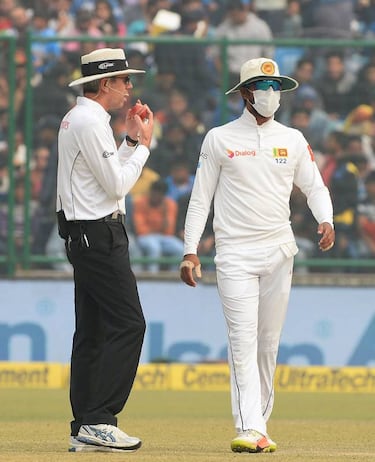Cricketers vomiting after fielding in Delhi smog - Pothas
Pollution stopped play on Sunday in the third Test between India and Sri Lanka. Visiting coach Nic Pothas said the smog was so extreme that his players - who wore face masks - were in a bad way.

Pollution stops play
Pollution stopped play on Sunday in the third Test between India and Sri Lanka, and visiting coach Nic Pothas said the smog was so extreme that his players - who took the extraordinary step of wearing face masks - were 'coming off the field and vomiting'. Concentrations of the smallest and most harmful airborne pollutants in Delhi, one of the world's most polluted capitals, hit 384 - 15 times the World Health Organization maximum - before returning to levels considered just 'unhealthy', the US embassy website showed.
A twenty-minute breather
Play was halted for around 20 minutes at the Feroz Shah Kotla stadium as Sri Lankan fielders complained of health troubles and the umpires consulted the match referee and team doctors. Play resumed but Sri Lanka protested twice more, with the visitors soon short on fielders as pacemen Lahiru Gamage and Suranga Lakmal returned to the pavilion. Indian skipper Virat Kohli declared his first innings on 536 for seven to get the visiting fielders off the ground after the third stoppage.

Choking and vomiting
India's powerful cricket board was less than impressed, accusing the visitors of making a fuss, and vowed to write to its Sri Lankan counterpart about the incident. But Pothas said his men were physically sick amid the 'extremely high' pollution levels choking the ground. 'We had players coming off the field and vomiting,' he told reporters after the match. 'There were oxygen cylinders in the change room. It's not normal for players to suffer in that way while playing the game.'
Delhi has been ranked among the world's most polluted capital cities, with air quality worsening in winter as cooler air traps pollutants near the ground.
Related stories
A

